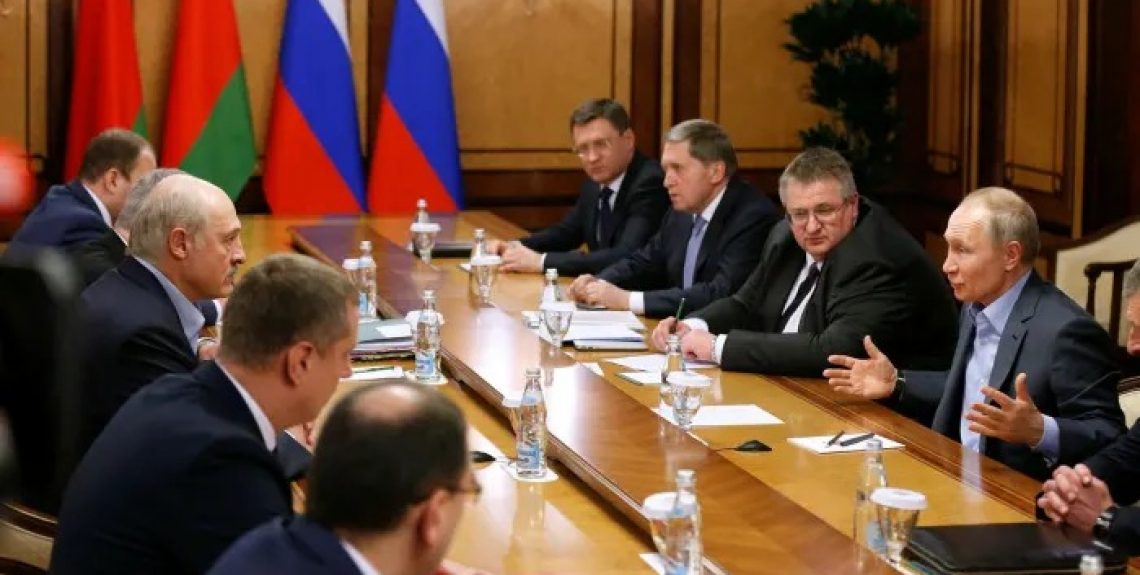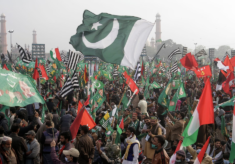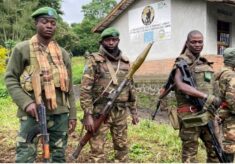The 25th of August sees as main decision by the Minsk authorities the imprisonment of two members of the Opposition Coordination Council after having filed a criminal investigation. It is not out of place to recall that this body, in addition to the opposition itself, includes world-renowned human rights defenders, entrepreneurs, representatives of the creative and scientific intelligentsia. In particular, the winner of the Nobel Peace Prize Svetlana Aleksievich, the economist Sergei Chaly, the famous teacher Yevgeny Livyant, the, culturologist professor Yulia Chernyavskaya and others.
Moscow refuses to comment on the criminal case against the Belarusian Opposition Coordination Council, stating that it is an internal affair. The Kremlin reaffirmed the language about the unacceptability of external pressure on the independent state.
Moving on to the counter-offensive: Alexandr Lukashenko is believed by analysts to have acquired the self-confidence that he had previously lost and now he is fulminating against his political opponents.
In the republic, however, arrests of demonstrators have resumed, but now they are more targetted. Leaders, including those of the strike movement, are identified: a clear warning that they are playing with fire.
All this is happening against the background of military exercises on the border with EU countries that according to the Belarusian President are the main culprits for what is happening. The exercise, scheduled from the 28th to the 31st of August (but in preparation since the 17th), will take place in the area of the city of Grodno that is away from Polish and Lithuanian borders in a radius of 30 km. The interesting feature of the drill is the combined deployment of airborne troops, UAVs and electronic warfare systems, among other units, together with “anti-saboteur” missions; an indication that the government is preparing against possible hybrid operations starting from the western borders. Clearly NATO and EU have denied any such intent.
All these actions of Minsk are clearly contrary to the common position of Russia and the EU. Both these entities and others invite the government to dialogue. But how to conduct it if one of the contending parties is trying to put the other in prison? The Opposition Coordination Council was created precisely to establish that very peaceful dialogue.
Russia has returned to its usual rhetoric: external interference in the affairs of a sovereign state, our ally, must not be allowed. Apparently the message is also a subtle indication to the opposition meaning that it should stopping interference and rebellion and recognize Lukashenko as legitimate president. At least for now.
But is still evident that the Belarusian people are not really in agreement with all this and it may seem that Minsk official power has nothing to offer its people repression apart. The missing ingredients to the sticks are the carrots. It is therefore a question of finding alternatives.
The West encourages dialogue with the opposition and does not recognize the result of the elections, but the Belarusian president has no intention of establishing any dialogue and considers himself legitimate ruler.
In the East, Russia itself moderately acknowledges that the elections were not exemplary and that discontent exists, but does not want to interfere in internal affairs and therefore leaves Lukashenko the faculty to decide whether or not he wants to dialogue with the opposition, but in fact in this way it validates Lukashenko’s position.
How long can this situation last? Possible accidents in mass demonstrations are possible, both random and with external direction. It therefore becomes urgent that Russia, the only power that has an exercisable moral suasion over Lukashenko, takes a stand and the only possible one is that new elections are held.
Since it seems rather certain that the next possible elections, if managed according to criteria of legality and transparency, would be lost by Lukashenko by a wide margin, it would better for him to step back, at the condition of course to find first a credible and expendable pro-Russian candidate to contend successfully.
Since the Russians seem either to have had no time to prepare beforehand for this scenario or that they pretended not to deal with it (in order to facilitate Lukashenko’s disarray and political self-annihilation, they are now short of time.
Russia cannot allow the Belarusian opposition to see the European Union or the West as a lifeline, because then it would strengthen ideological glue which is not yet palpable. On the other hand if the opposition were to see Moscow as an obstacle to its existence and survival, a Ukrainian scenario would be recreated in Belarus: a president supported by Moscow and the opposition supported by the West, with the results we already know.
It is therefore in the interests of Moscow that it itself finds a modality of dialogue with the opposition and, if possible, given that no charismatic leadership figures have emerged so far, that it favours the promotion of a man of the apparatus, but not unwelcome by the opposition.
In these days there are talks of intense contacts of the Russians with former Prime Minister Serghej Rumas, who was dismissed by Lukashenko in June and is a person of great prestige and recognized competence and reliability and also very close to the establishment of the two countries and of the economic interests that unite them.
Promoting Rumas as opposition leader or at least making many instances his own and running for presidency in new elections would neutralize the momentum of protests underway in the country.
Russian scenarios consider that even the opposition be savvy if it would avail itself with a man of the apparatus rather some ringleader, blogger or worse some neo-Fascists, simply because this would favour at least one common goal: to get rid of Lukashenko and have a president duly elected by the majority of Belarusians.
If, on the other hand, Rumas or whoever for him should become the candidate supported by Russia together with Lukashenko and against the opposition, there is a risk of bringing the opposition back into the arms of the European Union.
All these things are being discussed in Moscow these days and it is envisaged that a “Bulgarian” majority is not necessary to win the elections, but as in the West, 50,1% is enough. Looking at other controversial presidencies around the world, perfection is not a mandatory requirement..
Roberto D’Agostino
Executive and Italian Honorary Diplomat based in Russia, an expert in Government Relations and Russia’s domestic and international affairs. Graduated in Oriental Studies in Italy, he specialised in Middle East and Soviet Studies in Cairo, Moscow and New York.
























